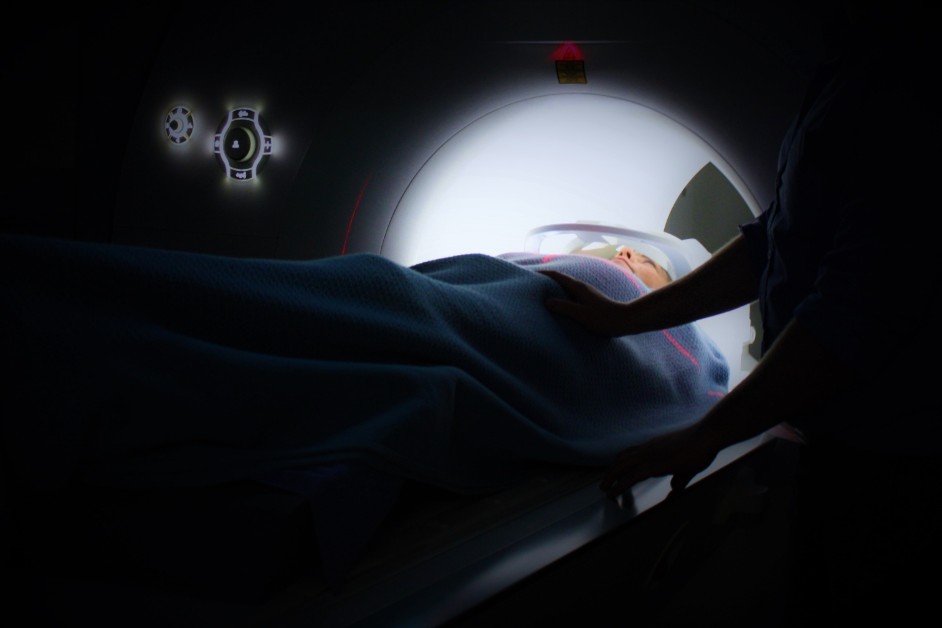If you are scheduling a medical imaging procedure — MRI, CT scan, Ultrasound, X-ray — your medical provider has ordered it as a diagnostic tool to either rule out or confirm a diagnosis. Scheduling and obtaining your diagnostic imaging test can be nerve-wracking for you, depending on what the expected or hopeful outcome of the test is.
You are sure to have plenty of questions, whether this is your first time getting the test or not. Some questions you may have thought to ask your medical provider, and others you’ll think of along the way. Questions are great and should be asked. You should always ask plenty of questions and be as involved as possible in your medical care and treatment plan. However, you should be aware that there are some questions that only certain medical personnel can answer, regardless of whether they know the answer or not.
Join us in a discussion of what questions you should ask your medical imaging specialist and which ones they cannot answer. We hope today’s post will help reduce your anxiety, quell some fears, and perhaps answer some questions you may haven’t thought of, yet.
Questions You Should Always Ask
Questions you should always ask your radiology technician are those that pertain to the procedure itself, your safety, or their credentials. For instance, you should ask:
- Will this hurt?
- How long should this take?
- Is there anything special I need to do to prepare?
- When will the results be available to my doctor?
- Was the machine cleaned?
- When was it last inspected?
- What are your credentials?
- Will my insurance cover this?
Depending on the type of procedure you are having done, you can ask about what the technician is doing and whether or not the images are coming out clear.
Questions They Cannot Answer
Radiology technicians, especially experienced ones will generally know all the answers to your questions, but are not allowed to tell you. Don’t worry, they are not keeping secrets from you and sometimes the technician may actually have no idea about the diagnosis.
Radiology technicians are trained and licensed to perform the procedure. This is a specialized skill that allows them to collect quality images that are then passed along for interpretation by a radiologist. A radiologist is a medical doctor who had special training in reading and interpreting medical images. For the most part. Even the radiologist will not make a diagnosis, they will simply state what is visualized. Whether an image shows normal tissue or an organ or any abnormalities they note.
Once a radiologist has interpreted the images, your medical provider will use these results as a tool in making a diagnosis. They will evaluate the impressions against the other available evidence including lab work, physical exam results, and your medical history to develop a working diagnosis.
A radiology technician who makes a diagnosis or even offers a guess, is working outside their scope of practice and can lose their ability to continue practicing. Incorrectly interpreting results can cause needless anxiety, worry, and may even result in medical errors. Questions your medical imaging specialist is not allowed to answer for you include:
- Is that normal?
- What do you see?
- Did it look okay?
- What do you think it means?
All of these questions will be answered by your medical provider, once they have evaluated all of the available information.
Potential Issues With Modern Technology
21st-century medical imaging technology is astounding. Technology, equipment, techniques, and software offer images that were unfathomable in decades past. Images are available immediately and results are interpreted much quicker. The digital ability for radiologists to view images off-site mere seconds after they are captured leads to lightning-quick results. And, with the wide-spread availability of patient access to their electronic medical record, you can view the preliminary results online, often times, the same day.
We offer our caution and plead for your caution in viewing these interpretations and strongly recommend waiting for your medical provider to call you with the final results. Without context, your radiologist is not making a diagnosis and will simply identify things that appear “outside normal, expected limits.” as you can imagine, a chest x-ray of a 22-year-old track star and a 68-year-old pack-a-day smoker have completely different “normal limits.”
With information available at any internet users fingertips, misinformation and needless worry is bound to ensue. Your medical provider will be able to answer all of your questions, even the ones your radiology technician is not allowed to.
If your provider has ordered a diagnostic imaging test for you, make an appointment at one of our medical imaging clinics near you. All of our clinics are equipped with state-of-the-art medical imaging technology, and certified by the American College of Radiologists. Your medical provider will receive the highest-quality images interpreted by a board-certified radiologist. Our patient-centered care will leave your only question answered, your definitive diagnosis. Visit us online to schedule your appointment today!


